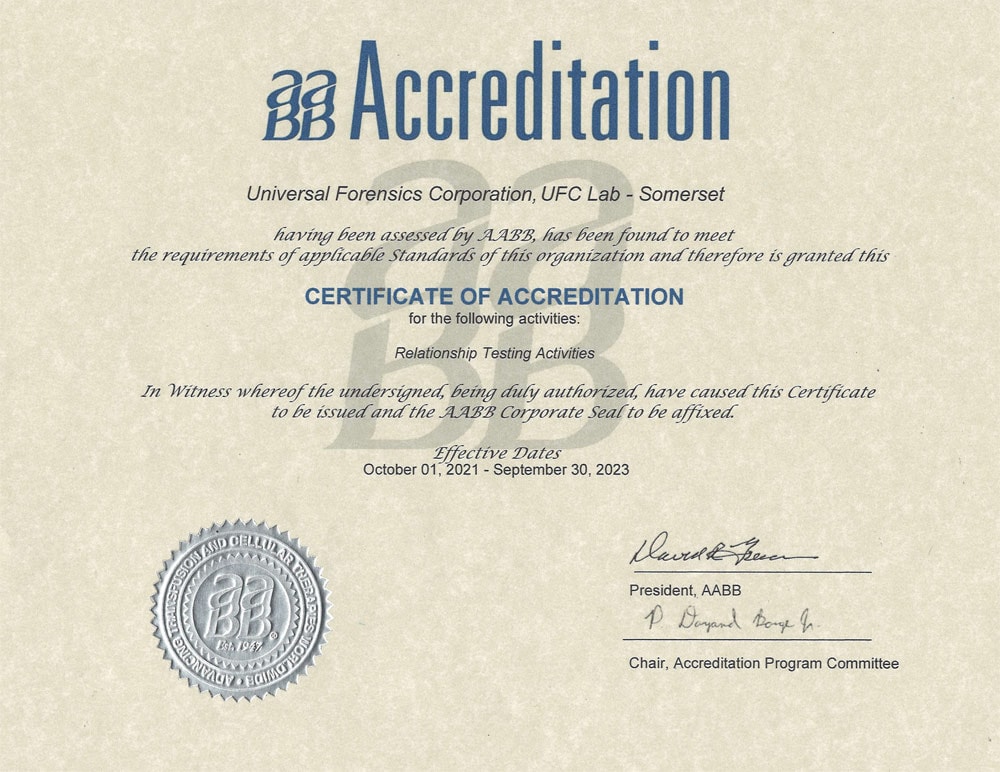Paternity Test vs. Maternity Test: Similarities and Differences Explained

Most of us dream of settling down one day and having children. People often say there’s nothing more fulfilling than holding their child for the first time. Unfortunately, not every family dynamic ends up the way we anticipate.
There may come a time when you need to organize a maternity test or paternity test. However, not everyone understands how to properly organize these tests. They also may not know the nuances of how these tests are conducted.
Let’s explore the key information you should keep in mind when moving forward.
What Is a Paternity Test?
This type of testing aims to determine whether an individual is someone’s biological father. Tissue samples are collected with a cotton swab and sent to a lab to determine if the person in question is a DNA match for the child. The test looks for unique characteristics known as genetic markers.
What Is a Maternity Test?
Maternity DNA testing is virtually the same as paternity testing except that it aims to establish who someone’s mother is. As with paternity testing, a cotton swab is used to collect DNA and send it to a lab for testing. After the process is completed, the results will conclude whether the suspected individual is the mother of a particular child.
Reasons for These Tests
Many people overlook the fact that there are a handful of reasons you can order a paternity or maternity test. It’s essential to understand these so you can make the most of the opportunities available to you. Listed below are some of the most notable.
Determining Biological Relation
There are many situations where children suspect that someone is their biological parent but don’t have proof. For example, a child who was adopted might want to determine if someone is their mother or father.
A paternity or maternity test can compare the child’s DNA to the other person’s DNA profile to determine if they’re a match. This can be a gateway to numerous outcomes, such as having peace of mind that you finally know who your parents are.
Child Support
Someone can only be ordered to pay child support if they’re the child’s biological parent. Without a DNA test, the other party may claim that the individual isn’t their child. Situations like these can easily cause financial distress.
For example, many children could highly benefit from having financial support from both parents. If their estranged father doesn’t claim any relation to the child, they likely won’t support them as they should. A DNA test can be used as evidence in court to establish a parental relationship.
From here, a judge could order them to provide a certain amount of money each month. It’s worth noting that receiving child support benefits the other parent, as well. They’ll experience less financial strain when they have consistent money coming in from the other party.
Child Custody
When battling over child custody, the other party could claim that someone isn’t biologically related to the child. Unless there’s hard evidence of the relationship, it could be difficult to establish parental rights. This is where DNA testing comes in.
These go a long way toward helping someone secure custody over children, potentially improving their quality of life. For instance, consider a scenario where a mother claims that her child’s father is deceased and that she should have sole custody. However, the child’s legitimate father is alive and well.
He attempts to fight for custody of his child, but the mother refutes his relationship and claims he’s lying. A DNA test will dispel ambiguity and make it easy for a judge to see the truth.
In this scenario, the judge would likely side with the father as long as he could properly support the child. The mother’s deception could cause the judge to question her suitability as a guardian and provider.
Inheritance Rights
While not as common as some of the other options on this list, it’s one of the most important. In some situations, family members who wish to exclude someone else from an inheritance could lie about their biological relationship.
This becomes increasingly common when dealing with large sums of money. Imagine someone’s father establishes that their fortune should be split evenly between his daughter and grandson. His daughter has a strained relationship with her son, and he isn’t aware that he’s in his grandfather’s will.
However, he later learns and attempts to claim his inheritance before his mother prevents him by claiming he’s not her son. By taking legal action, he could order a maternity test to prove his relationship with his mother.
Getting Started
To get started, you’ll need to find a reputable testing provider. This plays a large role in the type of results you’ll get. Their reputation is one of the most important attributes to consider.
See what other people have to say online about the experiences they had. More specifically, look for info about how long it took them to receive their results. You should also explore feedback about the company’s professionalism.
Keep an eye out for fake reviews during your search, however. What type of services does the provider offer? The last thing you want is to waste time pursuing a company that can’t meet your needs.
What are their pricing options? You often get what you pay for when choosing testing providers. Companies that offer rock-bottom prices could cause quality issues.
This doesn’t mean you have to spend as much money as possible, though. Somewhere in the middle of the price range can likely meet your needs without stretching your budget.
Are they communicative? If they’re difficult to get in touch with when you have questions or concerns, you could get left in the dark if issues arise.
Schedule the Right Test
Regardless if you need a maternity test or paternity test, it’s essential to work with the right provider. This will help ensure you get the best results and avoid issues you may have otherwise encountered.
RealiaLab Test is a full-service provider that emphasizes timeliness, security, and reliability. We specialize in drug, alcohol, DNA, and steroid testing for businesses. You’ll learn more about the benefits we offer when you schedule a consultation today.








